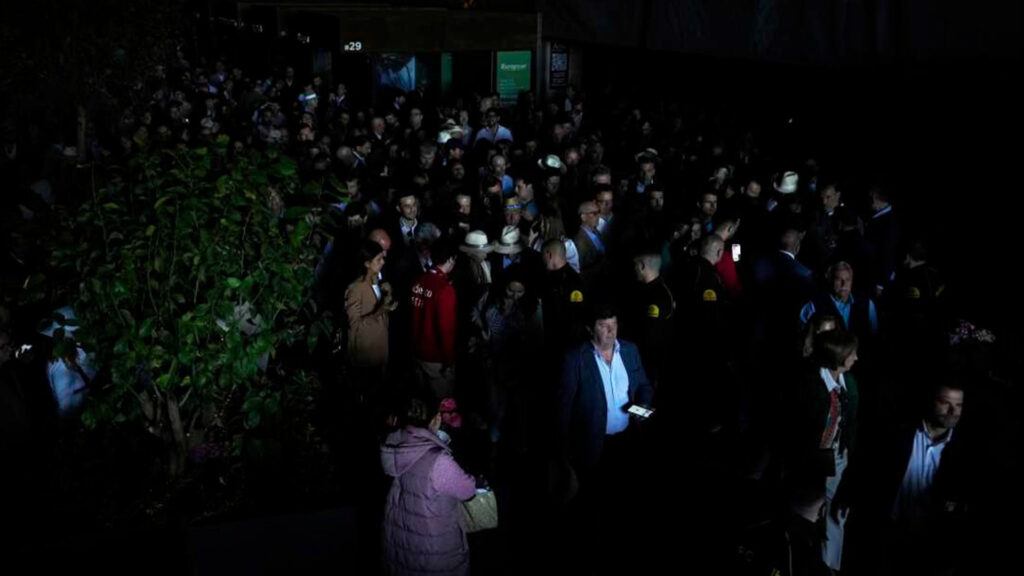
Newsletter Subscribe
Enter your email address below and subscribe to our newsletter

Enter your email address below and subscribe to our newsletter

Michael Shellenberger exposes why Spain’s power outage wasn’t a fluke but a foreseeable failure of solar-heavy infrastructure.
A sweeping power outage rocked Spain, Portugal, and parts of France recently, leaving millions trapped in elevators, stranded in subways, and helpless on the roads. While mainstream outlets like Reuters rushed to deflect blame from renewable energy, industry analysts and energy journalists like Michael Shellenberger argue otherwise.
According to Shellenberger, the public is being misled about the root cause, not due to a lack of data, but rather a political refusal to admit the limitations of weather-dependent energy.
The blackout serves as a wake-up call for both energy policy makers and private sector leaders across Europe. At the heart of the crisis lies a dangerous imbalance: an over-reliance on renewable sources without the inertia and reliability of traditional power systems.
At the time of the blackout, over 66% of Spain’s electricity came from renewable energy, more than half of that from solar power alone. While this may seem like a success story for green energy advocates, the abrupt shutdown revealed the Achilles’ heel of such systems: volatility.
Unlike coal, gas, or nuclear plants that rely on turbines with rotational inertia, solar and wind installations use inverters that lack the capacity to buffer fluctuations in supply and demand. In an energy grid, this buffering is vital — without it, even slight mismatches in frequency can lead to massive system failures.
Shellenberger, founder of Public News, explains:
“This is a very basic idea you probably remember from high school physics — inertia. Traditional power plants buffer minor fluctuations. Solar and wind don’t.”
The blackout wasn’t unforeseen. The Spanish utility warned of a potential collapse in February 2024. Further, the International Energy Agency (IEA) held a grid reliability conference the week before the blackout. Shockingly, the IEA still has not released the report, despite it being taxpayer-funded.
Shellenberger accuses both the Spanish government and international organizations of deliberately withholding this information to avoid political fallout:
“They knew what was going on and they’ve been spreading misinformation.”
Shellenberger points to the ideological and economic forces shaping Europe’s energy policy. As belief in God declines across Europe, he observes, renewable energy has taken on a quasi-religious status — a new secular salvation that promises to harmonize humanity with nature.
“It’s both a religious obsession and a political money machine,” he says.
This dynamic creates a closed loop of influence: governments fund renewables, and renewable companies funnel support back to political allies. This, critics argue, has compromised accountability.
The European blackout echoes growing concerns in the U.S. and across Asia about the reliability of renewable-dominant energy grids. In 2021, Texas suffered massive blackouts, largely attributed to renewable energy failures during a winter storm.
According to a report from the North American Electric Reliability Corporation (NERC), ensuring grid stability in high-renewable environments requires significant investment in base-load systems, battery storage, and grid-balancing technologies.
Failure to plan for this leads to instability and blackouts — a warning Spain’s blackout has now made all too real.
This isn’t just a political issue — it’s a business issue. Grid reliability affects:
Companies operating across Europe must now account for energy reliability as a key risk. Contingency planning, private generation, and on-site battery storage may become essential CAPEX priorities.
Spain’s blackout is more than a technical hiccup. It is a political scandal, a business risk, and a cultural reflection all in one. As Shellenberger notes, this won’t be the last time the lights go out unless governments come clean and begin investing in more balanced energy systems.
Watch the full interview on YouTube: Spain is ‘misleading’ public on blackouts | Michael Shellenberger